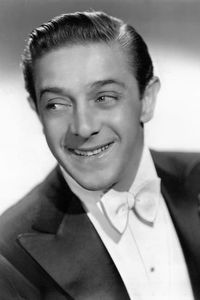Georgie Edwards' life story began with a tumultuous start, as his mother, a dedicated janitor, was forced to take an extended absence from work due to unforeseen circumstances, ultimately resulting in the eviction of his family of eleven from their long-time residence.
However, their fortunes took a dramatic turn for the better, courtesy of a compassionate social worker who stepped in to rectify the situation, enabling the family's eventual return to their home.
From a remarkably young age, Georgie began to hone his skills as a performer, entertaining crowds on the streets and subways of New York City, often accompanying his older brother on dry-cleaning delivery rounds, a venture that commenced in the year 1907.
Georgie's remarkable talent and exceptional abilities were brought to the forefront by the astute eye of Gus Edwards, a renowned entrepreneur in the world of Vaudeville, whose wife was thoroughly enamored with Georgie's enchanting singing voice. Edwards, recognizing Georgie's immense potential, decided to adopt him and provide him with the opportunity to showcase his talents in his esteemed song review, "School Days," alongside the talented Lila Lee, as the beloved duo "Little Georgie and Cuddles."
Georgie's impressive talent for mimicry was a hallmark of his career, with his uncanny ability to emulate various accents, voices, and even the mannerisms of renowned dancers, singers, and entertainers from yesteryear.
Notably, Georgie's remarkable impressions of Enrico Caruso were so convincing that the legendary opera singer himself offered to adopt the young performer, a testament to Georgie's remarkable vocal range and versatility.
Throughout his career, Georgie honed his skills by mastering the impressions of entertainers from bygone eras, showcasing his remarkable ability to channel the spirits of performers from the past.
However, Georgie's success was not without its challenges, as he faced difficulties during his adolescence due to his short stature, which ultimately led to him being typecast as a child performer. As he grew older, Georgie struggled to find roles that would allow him to showcase his impressive talents, leading to a period of uncertainty in his career.
In order to successfully navigate a significant impediment, Georgie resorted to a clandestine arrangement with an elevator attendant stationed at the Shuberts' office building, ingeniously donning the attendant's uniform to gain access to the audition process. As a direct result of this unorthodox strategy, Georgie rose to the status of a premier performer, supplanting the legendary Al Jolson in the process, and subsequently secured a long-term recording contract with RCA Victor, thereby establishing himself as the trailblazing pioneer in the non-classical music genre to achieve this remarkable feat.
In the pivotal decade of the 1930s, Georgie heeded the sage counsel of his esteemed friend and confidant, the astute financier Bernard Baruch, and made the shrewd decision to invest in the esteemed New York Stock Exchange, thereby commencing a new and lucrative career path.
Simultaneously, Georgie continued to remain deeply entrenched in the vibrant world of show business, assuming the role of president of The American Guild of Variety Artists, a prestigious organization dedicated to promoting and protecting the interests of variety performers.
Throughout the early 1950s, Georgie was a ubiquitous presence in the entertainment industry, hosting a multitude of charitable fund-raising events, as well as serving as the charismatic emcee of "The Big Time," a popular CBS radio show that captivated audiences nationwide.
Furthermore, Georgie played a vital role as a spokesperson for the vaunted world of Vaudeville, providing a voice for the retired performers who had once thrilled audiences with their dazzling talents.









